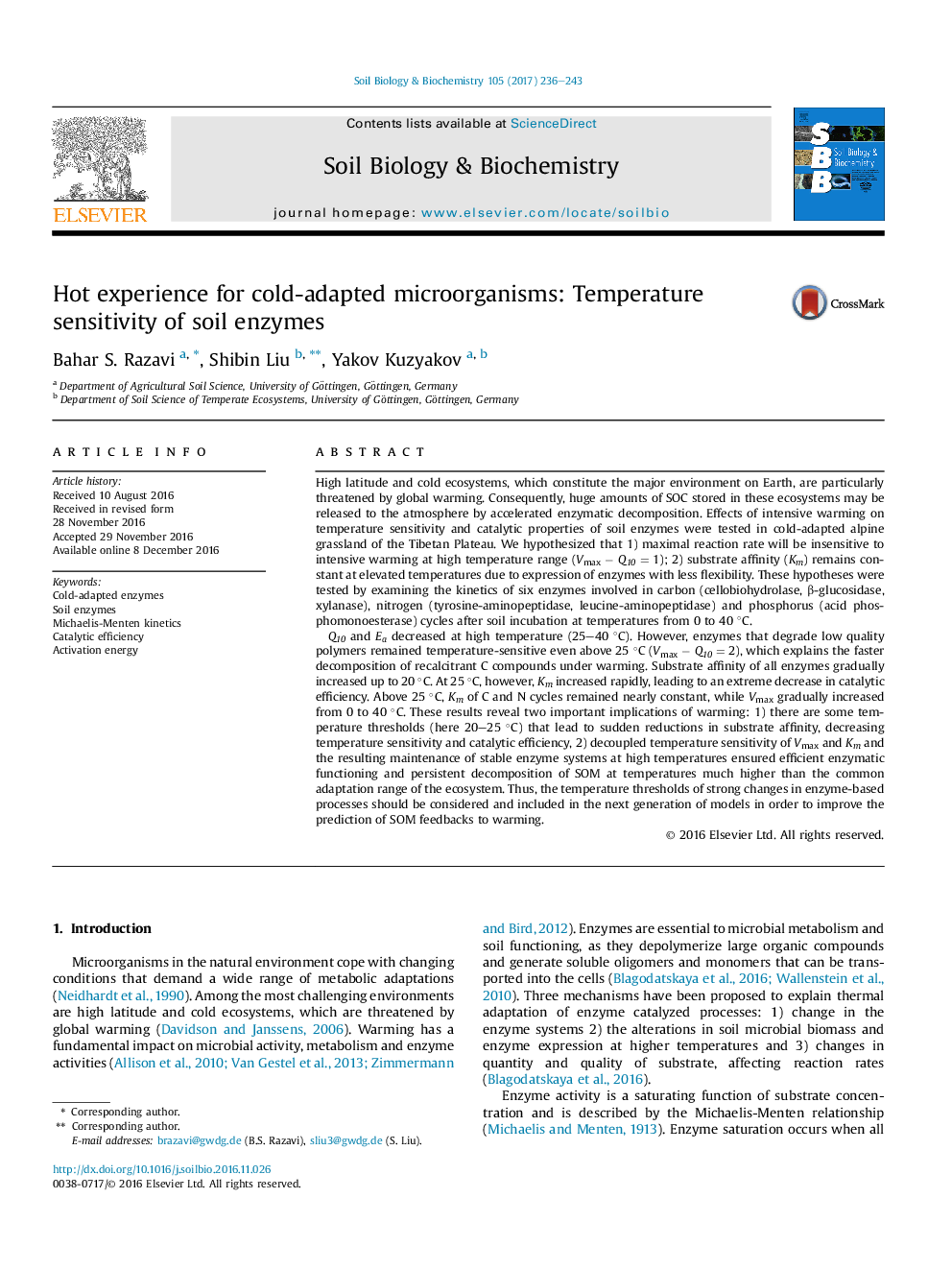| کد مقاله | کد نشریه | سال انتشار | مقاله انگلیسی | نسخه تمام متن |
|---|---|---|---|---|
| 5516519 | 1542579 | 2017 | 8 صفحه PDF | دانلود رایگان |
- Decoupled temperature sensitivity of Vmax and Km.
- Static substrate affinity at warmer temperatures.
- Occurrence of temperature thresholds (here 20-25 °C).
- Q10 and Ea decreased at high temperature (25-40 °C).
- Unexpectedly, enzymes that degrade low quality polymers remained temperature-sensitive at high temperatures.
High latitude and cold ecosystems, which constitute the major environment on Earth, are particularly threatened by global warming. Consequently, huge amounts of SOC stored in these ecosystems may be released to the atmosphere by accelerated enzymatic decomposition. Effects of intensive warming on temperature sensitivity and catalytic properties of soil enzymes were tested in cold-adapted alpine grassland of the Tibetan Plateau. We hypothesized that 1) maximal reaction rate will be insensitive to intensive warming at high temperature range (Vmax â Q10 = 1); 2) substrate affinity (Km) remains constant at elevated temperatures due to expression of enzymes with less flexibility. These hypotheses were tested by examining the kinetics of six enzymes involved in carbon (cellobiohydrolase, β-glucosidase, xylanase), nitrogen (tyrosine-aminopeptidase, leucine-aminopeptidase) and phosphorus (acid phosphomonoesterase) cycles after soil incubation at temperatures from 0 to 40 °C.Q10 and Ea decreased at high temperature (25-40 °C). However, enzymes that degrade low quality polymers remained temperature-sensitive even above 25 °C (Vmax â Q10 = 2), which explains the faster decomposition of recalcitrant C compounds under warming. Substrate affinity of all enzymes gradually increased up to 20 °C. At 25 °C, however, Km increased rapidly, leading to an extreme decrease in catalytic efficiency. Above 25 °C, Km of C and N cycles remained nearly constant, while Vmax gradually increased from 0 to 40 °C. These results reveal two important implications of warming: 1) there are some temperature thresholds (here 20-25 °C) that lead to sudden reductions in substrate affinity, decreasing temperature sensitivity and catalytic efficiency, 2) decoupled temperature sensitivity of Vmax and Km and the resulting maintenance of stable enzyme systems at high temperatures ensured efficient enzymatic functioning and persistent decomposition of SOM at temperatures much higher than the common adaptation range of the ecosystem. Thus, the temperature thresholds of strong changes in enzyme-based processes should be considered and included in the next generation of models in order to improve the prediction of SOM feedbacks to warming.
197
Journal: Soil Biology and Biochemistry - Volume 105, February 2017, Pages 236-243
